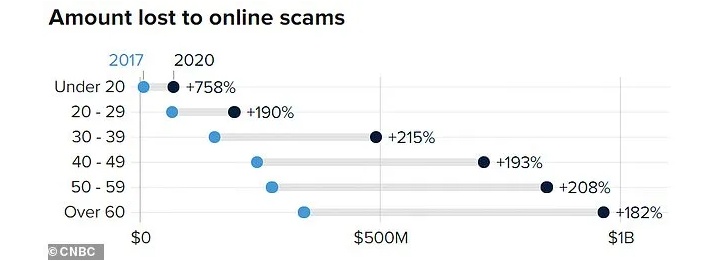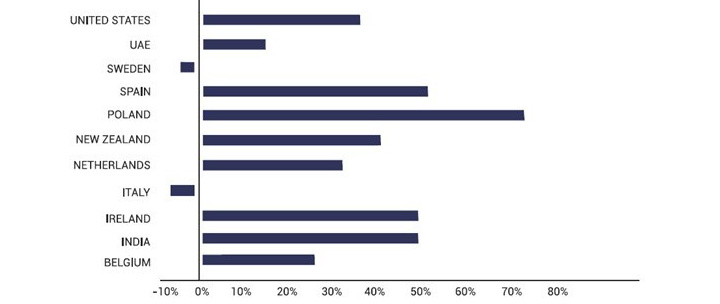Increasing Numers of Young People Fall to Online Scams
Older people active on the Internet are considered to be particularly vulnerable to online scammers. However, it turns out that also teenagers are not very prudent in this matter.

- Young Americans are by no means immune to tricks uded by online scammers - the report indicates a 156% increase in this group by 2020;
A study by Social Catfish confirms that despite being well versed in technology, teenagers are not at all immune to the tricks used by online scammers. According to the report titled "State of Internet Scams 2021", between 2017 and 2020, the number of people in the age group up to 20 who were scammed online increased by 156%. Scam totals in the same time frame have grown even more. In 2020 it was already 71 million dollars, while three years earlier cybercriminals "only" stole 8.3 million dollars from young people.
Social Catfish is dedicated to verifying dating website users and fighting matrimonial fraud. Their report is based on findings previously published by the FBI, the Internet Crime Complaint Center (IC3) and the Federal Trade Commission, as well as the results of its own survey of 722 members of a dedicated Facebook group.

While the trend among the youngest Internet users is worrying, it should not be forgotten that it is people over 60 who lead the way in vulnerability to fraud. The report is particularly impressed by the amount that was scammed from this age group - $966 million in 2020. This is mainly due to the excessive politeness of older people and their susceptibility to "stories", skillfully crafted by scammers.
But why are young people also becoming more and more frequent victims of online scams? Here, Social Catfish cites pandemic isolation as the main reason, which has led to more time spent with smartphones in hand and in front of computer screens. Young people give out their personal data more often, perhaps having less understanding of the risks involved.

- Social Catfish group on Facebook
- Hackers Carried Out the Biggest Cryptocurrency Theft in History
- Gigabyte Hacked; 112 GB of Documents From AMD and Intel in the Hands of Attackers
- His Steam account was hacked several times. The rescue turned out to be a 19-year-old game
- Players choose remakes over remasters, spending more to relive the classics, although there are few exceptions
- 72% of game developers think Steam is a monopoly. However, they have one good reason to keep using it
0

Author: Arkadiusz Strzala
His adventure in writing began with his own blog and contributing to one of the early forums (in the olden days of Wireless Application Protocol). An electrical engineer by profession, he has a passion for technology, constructing and, of course, playing computer games. He has been a newsman and writer for Gamepressure since April 2020. He specializes in energy and space tech. However, he does not shy away from more relaxed matters every now and then. He loves watching science-fiction movies and car channels on YouTube. He mainly plays on the PC, although he has modest console experience too. He prefers real-time strategies, FPS and all sorts of simulators.
Latest News
- End of remote work and 60 hours a week. Demo of Naughty Dog's new game was born amid a crunch atmosphere
- She's the new Lara Croft, but she still lives in fear. Trauma after Perfect Dark changed the actress' approach to the industry
- „A lot has become lost in translation.” Swen Vincke suggests that the scandal surrounding Divinity is a big misunderstanding
- Stuck in development limbo for years, ARK 2 is now planned for 2028
- Few people know about it, but it's an RPG mixing Dark Souls and NieR that has received excellent reviews on Steam, and its first DLC will be released soon

